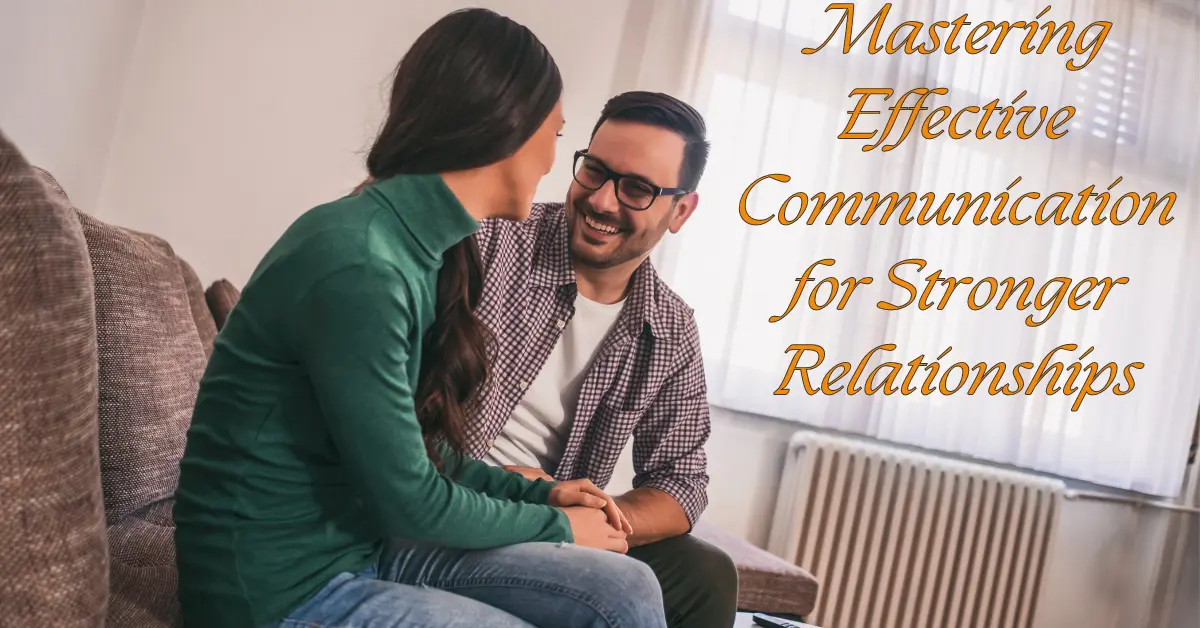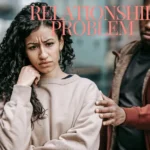Effective communication in relationships can sometimes feel like a difficult puzzle. Have you ever had a talk that left you more confused than understood? You’re not alone—about 70% of couples say communication issues are a major challenge for them. From my own experiences, I’ve seen how learning to communicate better can truly change the way you connect with your partner. When we openly share our feelings, it not only helps prevent misunderstandings but also builds trust and closeness.
Experts, like relationship psychologist Dr. John Gottman, emphasize that active listening is one of the best tools for improving communication. He suggests techniques like mirroring, where one partner repeats back what the other has said to ensure they really understand. This practice helps both partners feel heard and safe. So, if you’re ready to enhance your connection and tackle communication challenges together, let’s dive into how effective communication in relationships can lead to a happier, stronger partnership!
Read More: Maintain Strong Relationship
Understanding Effective Communication in Relationships
Effective communication is the process of exchanging information in a way that both partners feel understood and valued. When communication is effective, it creates a safe environment where both individuals can express their thoughts and feelings freely. According to research from the Journal of Marriage and Family, effective communication is one of the strongest predictors of relationship satisfaction.
In my own experience, I’ve found that when my partner and I communicate openly, we are better equipped to tackle challenges and enjoy our time together. This leads to a deeper emotional connection and overall happiness in the relationship.
What Makes Communication Effective in a Relationship?
Effective communication in relationships is essential for building trust and fostering connection. Here are the key elements that contribute to successful communication between partners:

1. Clarity and Honesty
- Be Direct: Clear and honest communication is crucial. Instead of vague statements, express your feelings directly. For example, instead of saying, “I’m not happy,” try saying, “I feel lonely when we don’t spend time together.” This clarity helps your partner understand your emotions better.
- Specific Examples: Use specific examples to illustrate your feelings. This prevents misunderstandings and ensures your partner knows exactly what you’re talking about.
2. Active Listening
- Full Attention: Listening is just as important as talking. Active listening means giving your partner your full attention without distractions. Put away your phone and maintain eye contact to show you’re engaged.
- Reflect Back: According to communication expert Dr. John Gottman, successful couples practice active listening by reflecting back on what they hear. For instance, if your partner says they feel overwhelmed, you might respond, “It sounds like you’re feeling really stressed right now.” This not only validates their feelings but also ensures both partners are on the same page.
3. Non-verbal Communication
- Body Language: Non-verbal cues, such as body language and facial expressions, play a crucial role in communication. Be aware of how you express yourself non-verbally.
- Engagement: Maintaining eye contact and nodding can show that you are engaged and interested in the conversation. Avoid crossing your arms, as this can appear defensive.
4. Empathy
- Understanding Perspective: Empathy involves putting yourself in your partner’s shoes. Try to understand their perspective, even if you don’t agree with it.
- Compassionate Discussions: This can lead to more compassionate and meaningful conversations. Instead of dismissing their feelings, acknowledge them and express your willingness to understand.
In summary, effective communication in relationships relies on clarity, active listening, awareness of non-verbal signals, and empathy. By incorporating these elements, you can foster deeper connections and navigate challenges together more smoothly. Making an effort to communicate effectively not only strengthens your bond but also leads to a more satisfying and harmonious partnership.
Types of Communication in a Relationship

1. Verbal Communication
- Definition: Verbal communication is the most common form and involves spoken words.
- Importance: Being clear and honest in your verbal exchanges can prevent misunderstandings and ensure both partners are aligned.
- Tips: Use straightforward language and avoid ambiguous phrases. For example, instead of saying, “I need space,” specify what you mean by that, like “I need some time to think things over.”
2. Non-verbal communication
- Definition: Non-verbal communication includes body language, facial expressions, and gestures that convey messages without words.
- Impact: Your body language can often express feelings more powerfully than words. For instance, crossing your arms might signal defensiveness, while leaning in shows engagement.
- Tips: Pay attention to your partner’s non-verbal signals. Make sure your own body language is open and inviting to promote a safe communication environment.
3. Written Communication
- Definition: This type involves using text messages, emails, notes, or letters to convey thoughts and feelings.
- Advantages: Written communication can be useful for articulating complex ideas or feelings that might be difficult to express in person.
- Caution: Remember that tone can be easily misinterpreted in writing. Choose your words carefully and consider following up with a verbal conversation if important topics are discussed.
4. Digital Communication
- Definition: In today’s digital age, many couples rely on social media, texting, and online messaging for daily communication.
- Convenience: Digital platforms allow for quick exchanges and can keep you connected throughout the day.
- Balance: While convenient, it’s essential to have face-to-face conversations to deepen your emotional connection and avoid the pitfalls of digital miscommunication.
By recognizing and utilizing these different types of communication effectively, you can enhance your connection with your partner and address challenges more smoothly. Remember, the goal is to foster understanding and intimacy, making each form of communication work for you and your relationship.
How to Communicate in a Relationship with a Man
Communicating effectively with a male partner can have its own set of challenges. Here are some practical tips to improve communication:

1. Be Direct
Many men appreciate straightforwardness. Instead of hinting, express your needs clearly. For example, instead of saying, “It would be nice if you helped with chores,” say, “I need help with the dishes tonight.”
2. Choose the Right Time
Timing matters when discussing serious topics. Avoid bringing up heavy issues when your partner is stressed or distracted. Find a moment when both of you can focus on the conversation.
3. Encourage Openness
Create a safe space for your partner to share their feelings. Let them know that it’s okay to express themselves without fear of judgment.
4. Practice Patience
Sometimes, it may take your partner longer to process their thoughts. Be patient and give them the time they need to articulate their feelings.
Signs of Bad Communication in a Relationship
Recognizing poor communication early can save your relationship from significant issues. Here are some signs to look out for:

1. Frequent Misunderstandings
If you and your partner constantly misinterpret each other, it indicates a communication breakdown that needs to be addressed.
2. Avoidance of Important Topics
If either of you avoids discussing serious issues, it can lead to unresolved feelings and resentment.
3. Increased Conflicts
If arguments become more frequent or escalate quickly, it may point to poor communication skills.
4. Emotional Distance
When partners stop sharing their feelings, it can create a rift. Emotional distance is often a sign of communication issues.
How to Fix Communication in a Relationship
If you find that communication has broken down, there are several strategies you can use to improve it:
1. Establish Regular Check-Ins
Setting aside time each week for check-ins can help both partners express their feelings and discuss any issues before they escalate.
2. Practice Active Listening
Make a conscious effort to listen to your partner without interrupting. Reflect back what you hear to show understanding.
3. Use “I” Statements
When discussing feelings, use “I” statements to express your emotions without blaming your partner. For instance, say, “I feel anxious when plans change suddenly,” instead of “You always change our plans.”
4. Seek Professional Help
If communication problems persist, consider couples counseling. A professional can provide guidance and tools to help you communicate more effectively.
Effective Communication Skills in Relationships
Developing strong communication skills can significantly enhance your relationship. Here are some essential skills to practice:
1. Patience
Take your time during sensitive discussions. Allow each partner to express their thoughts without rushing.
2. Openness
Be willing to share your feelings and experiences honestly. Vulnerability can lead to deeper connections.
3. Emotional Intelligence
Understanding your emotions and those of your partner can lead to better communication. Be aware of how your feelings influence your discussions.
4. Conflict Resolution Skills
Learn to approach conflicts constructively. Focus on finding solutions rather than assigning blame.
Personal Experience and Proof
In my own relationship, I’ve faced my share of communication challenges. For example, I once struggled to express my feelings when I felt overwhelmed. By applying the strategies I learned—like using “I” statements and practicing active listening—I noticed a significant improvement in how we handled conflicts.
Research supports this experience. According to a survey by the American Association for Marriage and Family Therapy, couples who actively work on their communication skills report a 70% increase in relationship satisfaction. This statistic emphasizes the importance of effective communication.
Conclusion
Effective communication in relationships is vital for building trust, understanding, and intimacy. By learning the key elements of effective communication, recognizing the signs of poor communication, and applying practical strategies, you can strengthen your relationship and overcome challenges together. Remember that every relationship requires effort and commitment, but the rewards of improved communication are worth it. Start implementing these tips today and watch your connection grow deeper and more fulfilling.
Feel free to share your thoughts or experiences on communication in relationships in the comments below!
Disclaimer: I am not a relationship expert. The information in this article comes from my own experiences and insights. For professional guidance, it’s best to consult a qualified relationship counselor or therapist.
Disclaimer: I am not a relationship expert. The information in this article comes from my own experiences and insights. For professional guidance, it’s best to consult a qualified relationship counselor or therapist.
Q1: What are common barriers to effective communication in relationships?
Common barriers include lack of time, stress, emotional triggers, and differing communication styles.
How can I improve my listening skills?
Practice active listening by focusing fully on your partner, summarizing what they say, and responding thoughtfully.
What should I do if my partner shuts down during conversations?
Give them space but encourage them to express their feelings when they are ready.
How can we rebuild communication after a major conflict?
Start with a calm conversation where both partners share their feelings and listen without judgment. Set a positive tone for the discussion.
Is it normal to have communication issues in a relationship?
Yes, many couples experience communication challenges. The key is to recognize them and work together to improve.










